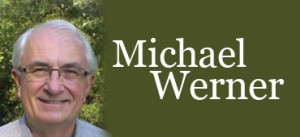Sex: Our Wonderful Gift

I GREW UP in a time before there was any sex education and when people only spoke of sex in hushed terms around children. They spoke of cancer the same way. At puberty, when certain things started to rise in the morning, I put two and two together and assumed I had cancer. It was certainly fast growing, and I was sure it was incurable and would lead to death.
I chose not to share my life-threatening illness and suffered in silence. It was only on a Boy Scout trip I shared my impending demise with an older scout and he told me, “Hell, no. Do you know what you can do with that thing?” I laugh at it now, but I lived in paralyzing terror for about a year. You probably have a distortive early life experience around sex as well. They’re not uncommon.
I went to Catholic school, which messed up my views about sex, and moved from a parish just before every single boy there was eventually molested. At the new parish, in fifth grade, a nun stood at the end of a line of urinals looking down to “make sure we didn’t act up.” Sure.
Evolution gives us two powerful instincts: survival and reproduction. It’s amazing to think that every one of our ancestors going back hundreds of millions of years survived and reproduced or else we wouldn’t be here. We won the lottery. It is the visceral power of the sexual drive that makes it both so problematic and so wonderful.
Sex has traditionally been a source of power and control. Religion especially has found it to be one of the best ways to dominate, but some attitudes on the left can also be problematic. Alexis de Tocqueville saw (as most historians see) Puritanism as the animating continuing spirit in American history. Our culture is permeated with shame, guilt, punishment, and low self-esteem concerning sex. One study found that 70 percent of all emotional disturbances are centered on shame, and I would wager that sex is at the heart of most of it.
Moralists on both the right and the left will tell us what we should desire and think, and how we should behave concerning sex, ultimately reflecting their own fears. If you take some time to reflect you may see some of your own
biases. What do you judge? What do you find repulsive? There are lots of sexual behaviors I find distasteful but am committed to defending. Albert Ellis, who was the founder of Rational Emotive Behavioral Therapy, coined the term “musterbation” for the way we demand the universe to adhere to our personal standards when in fact there are none. Sex just is and the universe doesn’t tell us one way is the “right” way or the “wrong” way. It’s part of what Friedrich Nietzsche called our Dionysian selves. It’s not bound by reason, but is wild and untamable which makes it so dangerous to ordered minds or societies.
For humanists, sex is seen as a healthy desire and an act that can certainly be for procreation but primarily is for unadulterated enjoyment. It’s we who adulterate it. It can be a source of pure joy and not mean anything. In a greater context, we need to ensure that our sexual relations are consensual between adults and without coercion, but after that we want freedom in our relations.
In the 1970s the American Humanist Association was at the forefront of promoting sex education in schools, but the battle continues for lifelong, complete scientific information. Much of the harm that I and others endured can be mitigated by good education. According to a recent study, sexual shame is lower and there are higher rates of female orgasm in Scandinavia where they have great sex education compared to the poor sex education in the United States.
There is so much needless pain and sorrow and so much lost joy surrounding sex. Religions traditionally use it as a patriarchal tool for power and control. Humanists see sex as a great gift from nature that can enhance our personal joy and our mutual relations. That’s not to say sex can’t complicate things, but humanists recognize and celebrate the fact that sex is both an animal instinct and a humanizing force.
